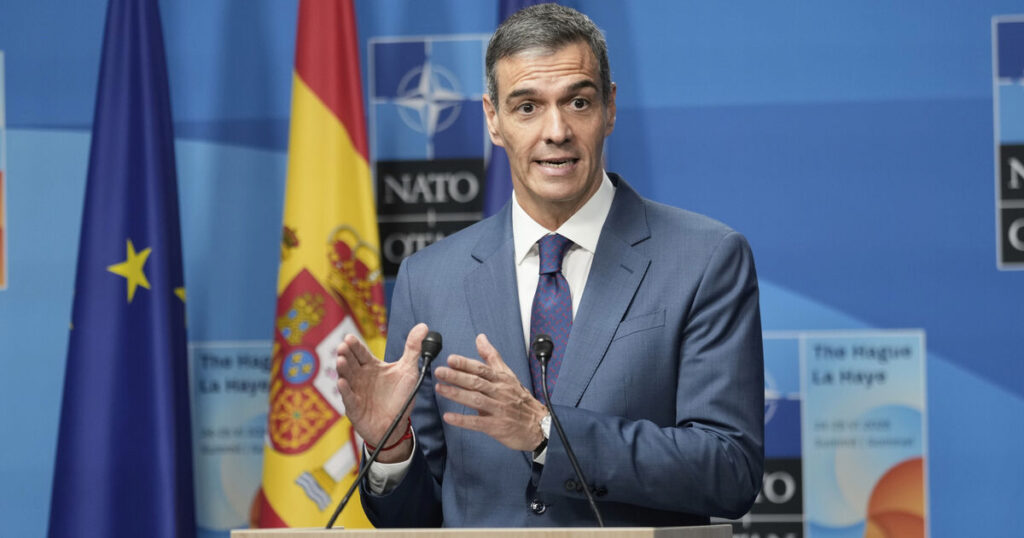Spanish Prime Minister Pedro Sanchez concluded this week’s Nato summit with both an opt-out regarding increased defence spending and new tariff threats from US President Donald Trump.
On Thursday, Mr. Sanchez, a progressive leader, defended his decision to deviate from Nato allies. He addressed Mr. Trump’s remarks by clarifying that the European Commission, not Spain, determines the bloc’s trade policies.
“What is clear is that trade policy is a policy directed from here, from Brussels,” Mr. Sanchez stated. “Spain is an open country, friendly to its friends, and we consider the United States a friend of Spain.”
During Wednesday’s military alliance summit, members committed to increasing defence spending to 5% of GDP. However, Mr. Sanchez negotiated a last-minute exemption, committing Spain to a maximum of 2.1%, which he deemed “sufficient and realistic.”
Following the summit, Mr. Trump criticized Spain, suggesting the country desired “a little bit of a free ride” and would “have to pay it back to us on trade” through increased tariffs.
The potential ramifications of Mr. Sanchez’s strategy became a topic of discussion on Thursday.
“It is not always easy to interpret exactly what Mr. Trump means,” stated Belgian Prime Minister Bart De Wever to reporters at an EU summit.
“How he wants to impose import tariffs on Spain separately is a mystery to everyone. Could this perhaps concern specific products from Spain? We will have to wait and see.”
Spain’s actions on the international stage coincide with a challenging domestic period for Mr. Sanchez. Corruption cases involving individuals close to him have implicated his Socialist party, leading to increased calls, even from some left-wing allies, for early elections. To date, Mr. Sanchez has resisted these calls.
“To Trump’s theatre, Mr. Sanchez responds with something similar,” noted Montserrat Nebrera, a political analyst and professor of constitutional law at the International University of Catalonia. “Domestic problems are piling up, and this resistance to meeting the arbitrary 5% target also seeks to wink at his partners most critical of defence spending.”
According to the alliance’s estimates, Spain was Nato’s lowest spender last year, allocating approximately 1.28% of its GDP to defence expenditure.
In April, Mr. Sanchez announced the country would reach 2% this year, a declaration met with criticism from certain left-wing allies.
On Thursday, Antonio Garamendi, president of the Spanish Confederation of Business Organisations, criticized Mr. Sanchez for the spending opt-out.
“We have to stick with our allies and not going along with the other Europeans is an error, and even more so if that increases the chance we will be punished,” Mr. Garamendi said.
Although Spain operates under the umbrella of the European Union, which negotiates trade agreements on behalf of all 27 member states, it remains susceptible to targeted tariffs impacting its most vulnerable industries, Mr. Garamendi explained.
He specifically highlighted the Spanish steel, automotive, and olive oil sectors.
“There are industries that can be impacted, and that has to concern us,” he added.


